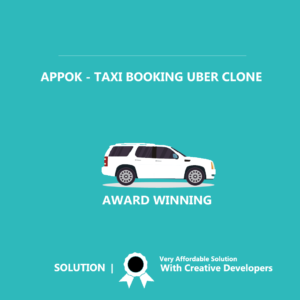Introduction
The traditional cleaning industry has been a fixture of our society for centuries, with maids and cleaning staff providing valuable services to homes, offices, and other establishments. However, in recent years, the advent of Uber for maids has significantly impacted the industry, changing the way people think about and access cleaning services. In this article, we will explore the impact of Uber for maids on the traditional cleaning industry, and what it means for both consumers and service providers.
First and foremost, Uber for maids has made it easier than ever for consumers to access cleaning services. Rather than having to go through a lengthy hiring process, which can involve interviews, background checks, and other time-consuming steps, customers can now simply download an app and book a cleaning service with a few taps of their finger. This ease of access has led to an increase in demand for cleaning services, as more people are able to take advantage of them.
At the same time, however, this increase in demand has also led to a rise in competition among cleaning services. With so many options available, consumers are more likely to shop around and compare prices, which has put pressure on traditional cleaning companies to offer competitive rates and more comprehensive services. This has forced many companies to innovate and improve their offerings, in order to stay ahead of the curve and attract more customers.
Another way that Uber for maids has impacted the traditional cleaning industry is by changing the way that cleaning staff are hired and managed. With Uber for maids, cleaning staff are often classified as independent contractors, rather than employees. This means that they are responsible for their own taxes, insurance, and other expenses, and are not entitled to the same benefits and protections as traditional employees.
While this may be beneficial for some cleaning staff, who prefer the flexibility and autonomy that comes with being an independent contractor, it can also be problematic for others. Without the same protections and benefits as traditional employees, cleaning staff may be more vulnerable to exploitation or mistreatment by their employers. Additionally, the lack of regulation in the industry can make it difficult for customers to know whether the cleaning staff they are hiring are properly qualified and trained.
Despite these challenges, however, many cleaning staff have embraced the flexibility and earning potential that comes with working for Uber for maids. By being able to set their own schedules and work as much or as little as they want, they are able to earn a living while still maintaining a degree of independence and control over their own lives.
Finally, Uber for maids has also had an impact on the way that customers perceive cleaning services. Traditionally, cleaning services were seen as a luxury or a necessity, depending on the person’s financial situation and lifestyle. However, with the rise of Uber for maids, cleaning services have become more accessible and affordable, leading more people to consider them as a regular part of their lives.
This change in perception has also led to an increase in demand for more specialized cleaning services, such as deep cleaning, move-in/move-out cleaning, and post-construction cleaning. These services were once seen as niche offerings, but are now becoming more common as people look for ways to keep their homes and workplaces clean and sanitary.
conclusion
In conclusion, the impact of Uber for maids on the traditional cleaning industry has been significant and far-reaching. While it has made cleaning services more accessible and affordable for many people, it has also put pressure on traditional cleaning companies to innovate and improve their offerings. Additionally, the rise of independent contractors in the industry has raised concerns about worker exploitation and regulation. Nonetheless, the popularity of Uber for maids suggests that it is here to stay, and will continue to shape the future of the cleaning industry for years to com




